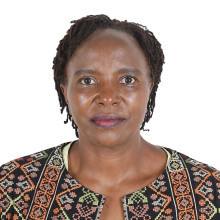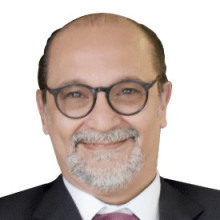
Women's Roundtable
Summary
The 1995 Beijing Declaration and Platform for Action remains a visionary agenda for the women’s empowerment, serving as the most comprehensive global policy framework, blueprint for action, and source of guidance and inspiration for realizing gender equality and the human rights of women and girls.[1] Nearly 30 years after the Fourth World Conference on Women in Beijing, the Declaration and Platform’s 12 key aspects of women’s empowerment and gender equality continue to remain strategically relevant.
As the international community approaches the next five-year review of progress towards its implementation at Beijing+30 in 2025, this roundtable will consider the opportunities and challenges facing women in cities and towns, with a focus on local-level action. Key topics include women’s access to funding at individual, business and organizational levels; the local prioritization of services essential for women, including adequate housing, health care and transportation; and women’s access to and participation in decision-making at the local level, both in leadership positions and in the context of community participation.
Speakers will take stock of progress made in these thematic areas since Beijing+25 in 2020, situating this progress and remaining barriers in the context of the multiple crises we have collectively been experiencing since the start of the pandemic. They will share lessons and successes, offering recommendations for the next five years and considering the catalytic impact of a gender-responsive implementation of the New Urban Agenda.
The Roundtable will draw inspiration from the Women’s Assembly discussions, which align with the 12 critical areas of concern outlined in the Beijing Declaration, building on these to formulate inputs into both the WUF Declaration and the Beijing+30 review process, including the national preparations for 2025.
The Women’s Roundtable will commence with high-level welcome speeches from senior government and United Nations officials, followed by two moderated panel discussions. A question-and-answer session will precede closing remarks, fostering an engaging and interactive environment.
Linkage with WUF12 theme
The Beijing Declaration and Platform for Action outlines 12 critical areas for concern: women and poverty; education and training of women; women and health; violence against women; women and armed conflict; women and the economy; women in power and decision-making; institutional mechanisms for the advancement of women; human rights of women; women and the media; women and the environment; the girl child. These areas of prioritization overlap substantially with the thematic focus of the WUF12 Dialogues. In particular, this Roundtable will address the themes of finance, housing, and collaboration, exploring ways to improve access to financing ensure adequate housing and build partnerships for empowering women at the local level.
Objectives
- Assess advancements and ongoing challenges in women's empowerment and gender equality at local and city levels since Beijing+25, particularly in the context of recent global crises.
- Explore strategies for enhancing women's access to essential services and participation in decision-making, focusing on local actions that align with the Beijing Declaration's goals.
- Develop recommendations to ensure that discussions of gender-responsive urban policies feature in the upcoming Beijing+30 review process.
Expected outcomes and impact of the session
- This event will assess the last five years of women’s empowerment and gender equality at the local and city levels, highlighting progress achieved, the challenges overcome, and the opportunities that remain.
- The event will emphasize the links between the New Urban Agenda and Beijing+30 broadly and in relation to the specific work of speakers and participants.
- The Roundtable will explore the key considerations we, as women’s rights and gender equality practitioners, advocates and activists, need to keep in mind as we prepare for the Beijing+30 discussions in March 2025. The focus will be on ensuring that all voices, especially those from the local level, are adequately represented in the discussions and the declaration.
- The Roundtable will generate key messages related to the importance of localizing women’s rights at city level, which will be carried forward to the Beijing+30 discussions.
Guiding questions
Mayor / local authority
- As a mayor or local authority, what challenges, opportunities and impacts have you experienced in your efforts to ensure women and girls’ access to local decision-making in your city?
- Based on your experience, what actions are needed at the local level for cities to ensure that essential services, such as adequate housing and health care, are available and accessible to all women and girls, especially those most at risk of being left behind?
- Prompt for closing remarks: Reflecting on the discussion and the summaries we have heard from the Women’s Assembly, what key messages from cities and local authorities should be considered as we approach Beijing+30?
Local community / grassroots
- Question 1: From your perspective as a grassroots women’s organizer, what have been the most significant achievements for urban women in implementing the Beijing Action Plan over the last five years?
- Question 2: What challenges have you observed at the community level---financial, political, or related to public opinion---that impact local activism for women’s rights? In your experience, what is needed to empower grassroot women’s organizations?
- Prompt for closing remarks: In your view, what is needed to ensure that the views of local level women’s rights activists / women’s collectives / grassroots organizations can shape the Beijing+30 discussions?
Funding body
- What is your perspective on economically prioritizing local women’s empowerment initiatives, both through ensuring individual women can access credit, for example, and through supporting women-led organizations? What impact have you observed from engaging directly at the local level?
- How do you ensure that local and national funding is gender-transformative?
- Prompt for closing remarks: In your view, how can we make Beijing+30 a priority for funding bodies?
National authority
- Your country has traditionally taken a lead role in negotiating the Beijing Declaration reviews. What key developments have you observed since Beijing+25, both in globally and locally?
- What do you think we can expect in the Beijing+30 negotiations? How can we ensure that the importance of the local level, including funding, services, women’s empowerment activism etc., is adequately reflected?
- Prompt for closing remarks: From a national government perspective, what do you believe is needed to create a strong Beijing+30 declaration that includes a focus on the local level?
Egyptian women’s rights organization or local authority
- In your experience in the local / national Egyptian context, how have you been able to promote equal access to resources and economic opportunities for urban women? Could you share some of the impacts achieved over the last five years?
- How has the situation for women’s empowerment and gender equality evolved in Egypt over the last five years, particularly at the local level? What lessons have you observed that could be applicable in other contexts?
- Prompt for closing remarks: From your perspective, what are the key local considerations that must be captured in the Beijing+30 declaration?
Localizing the international speaker
- The Beijing Declaration and Plan for Action is an essential road map, not just to empower women, but also for realizing the Sustainable Development Goals. Yet nearly 30 years after the original Declaration, globally, we are not on track to achieve gender equality or SDG 5. What do you see as the key barriers to progress?
- Globally, women remain drastically under-represented when it comes to mayor and city leadership positions. Based on your experience, how can we strengthen women’s equal access to leadership roles at the local level?
- Prompt for closing remarks: How can we increase the relevance of the Beijing Declaration at the city level?









 Streaming on UN WEB TV
Streaming on UN WEB TV